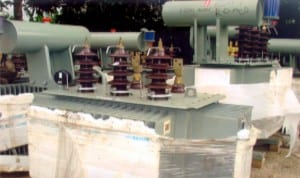Oil & Energy
Ijaw, Ikwerre Youth Unite Against Oil Firms
The youths of two major
ethnic groups in Rivers State, Ijaw and Ikwerre, have vowed to forge a common front in fighting against marginalization of their people by the International Oil Companies (IOCs) operating in Rivers State in particular and the Niger Delta region at large.
Leadership of the two groups, Ikwerre Youth Council and the Ijaw Youth Council made the vow in Port Harcourt Friday at the formal inauguration of the Eastern Zonal/Clan Executives of the Ijaw Youth Council.
Addressing the press after the formal inauguration; Chairman of IYC Eastern Zone, Comrade Peter Timothy Igbifaa and his Ikwerre Youth Council counterpart, Chinedu Smith, said the two groups have agreed to use one voice to stand against marginalization and exploitation by the oil companies operating in the area.
Smith accused the companies of not only exploiting the people but also instigating Ijaws and Ikwerres against one another, saying the new unity of purpose and love amongst the groups would stamp out such antics of the oil firms.
The Ikwerre youth leader noted that the two ethnic groups are bound in common destiny but that Ijaws were split into states to enable them achieve common goal and expressed regrets that enemies of the groups, including the oil majors were taking undue advantage of the separation to instigate them against one another.
In his own speech, the newly inaugurated Chairman of Ijaw Youths Council, Comrade Peter Timothy Igbifaa said the collaboration between the two youth groups would enhance actualisation of socio-political and economic gains of the state and Niger Delta region.
He commended the entire Ijaw youths and elders council for the confidence reposed in them and “The journew of today has started a new course. I affirm my promise to all who have suffered, become widow, orphans and fatherless, the zone will not let you down,” Igbifaa promised stressing that the vision of economic emancipation as pursued through Kaiama Declaration is still on.
He particularly solicited for the co-operation and continued understanding of the council with the new executive in actualizing set goals.
The IYC boss also commissioned the new zonal secretariat in Port Harcourt.
Chris Oluoh
Oil & Energy
Dangote/NUPENG Feud: Tanker Drivers Disown ‘PTD Elders Forum ‘, Seek Impostors’ Prosecution

Oil & Energy
GEIL To Unveil $400m Indigenous Crude Oil Terminal in Rivers

All is now set for the unveiling of the indigenous $400m Otakikpo Onshore Crude Oil Terminal in Rivers State, billed for Wednesday, October 8, and to be performed by the President, Bola Ahmed Tinubu.
“This project is a strategic infrastructure that supports the administration’s commitment to raising output while reducing costs,” Ilori said.
With an initial storage capacity of 750,000 barrels, expandable to three million barrels, and a loading capacity of 360,000 barrels per day, the facility is also projected to reduce production costs for indigenous producers significantly.
Oil & Energy
Nigeria’s Oil Boom Meets Its Refining Headache

-

 News18 hours ago
News18 hours agoEzekiel-Hart Family Lauds Fubara Over Perm Sec’s Appointment
-
Sports19 hours ago
Warri Wolves, Delta Queens commend Governor for donating buses to clubs
-
Maritime18 hours ago
NAVY Hands Over 419 Seized Bags Of Foreign Rice To Customs
-

 Maritime18 hours ago
Maritime18 hours agoCustoms Assures Commitment To CSR Drive, Promises Support For Sisters Agencies
-

 News18 hours ago
News18 hours agoNUJ hails DSS for releasing detained journalists
-
Sports19 hours ago
Chadian referee To Officiate Lesotho, Nigeria clash
-

 Maritime18 hours ago
Maritime18 hours agoCOWA Champions Campaign Against Maternal Mortality
-

 Rivers18 hours ago
Rivers18 hours agoHeliconia Park Launches Port Harcourt Hotel & Golf Resort


